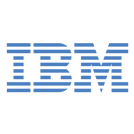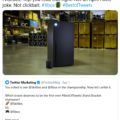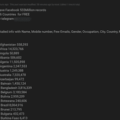
In a case between usenet provider News-Service Europe and Stichting Brein, the Supreme Court ruled that the provider did not infringe copyright and, in that sense, did not act unlawfully towards rightholders. With this, NSE wins a long-running case against Brein.
In the current judgment of the Dutch Supreme Court, the question was whether the Court has previously issued a legally correct ruling. This case revolves around the question of whether NSE, operator of a platform for usenet services, is liable for usenet services provided in the past and, in that sense, has infringed the copyrights of rights holders affiliated with Brein. The Court Brein was partly wrong in 2016. It then ruled that the Usenet provider was not infringing, but it did demand that a notice-and-takedown procedure be instituted. Subsequently Brein lodged an appeal in cassation and now the Supreme Court, as the highest court in the Netherlands, has rendered a judgment.
The Supreme Court has decided to answer the legal question turned to the European Court of Justice which has previously ruled in a similar, combined case in which YouTube and Cyando, an operator of a hosting and sharing platform, were held accountable on the basis of the copyright directive and whether they could be held liable therein. In that case, the Court of Justice ruled that a platform operator only carries out an act of communication, i.e. the making public of copyrighted material, if it intervenes deliberately, and therefore with full knowledge of the consequences of its action, to grant access to its customers to a protected work.
That question was also central to the case between NSE and Brein. Based on the outcomes of this earlier case of the Court of Justice, the Supreme Court considers that NSE did not make a well-considered intervention to grant its clients access to a protected work. To be held liable, NSE had to have actual knowledge of concrete unlawful acts by its users in relation to protected content uploaded on its platform. It is then insufficient for liability that the provider is generally aware that its platform is also used for content that infringes copyrights. This strikes a balance between the interests of the rightholders and the interests of freedom of expression.
Brein complained, among other things, about the application of the notice-and-takedown procedure that was instituted at NSE. According to the Court, with this procedure the provider complied with the obligation that a service provider, as soon as it knows or should reasonably know about an activity or information of an unlawful nature, must immediately remove the information or make access to it impossible. According to Brein, NSE has not taken any measures that make it possible to immediately remove all articles reported by Brein from the servers. The Court had previously examined whether Brein’s statement that NSE only processed 25 reports per hour should be regarded as reprehensible. According to the Court, this was not the case, because Brein did not argue that it wanted to submit more than 25 reports per hour and actually did so, or that NSE would have refused part of it.
The Supreme Court thus concluded to the opinion that NSE has made no announcement to the public with its hosting services and therefore falls within the exemption from liability. With this, the Supreme Court, like the Court of Appeal, says that NSE plays a more or less neutral role in this case as a platform. The Supreme Court also points out that the provider only offered services of a technical, passive and automatic nature. According to the Supreme Court, Brein’s assertion that NSE had knowledge of or had control over the stored messages by determining the retention time, using a spam filter and offering a search function does not hold. NSE also did not participate in the selection of the protected content, nor did it offer tools on its platform specifically designed to illegally share this content. The judges also state that it has not been shown that NSE deliberately stimulated the sharing of protected material. It is further noted that by setting up the notice-and-takedown procedure and a fast-track procedure, which allows some parties to remove unlawful articles from NSE’s servers without the intervention of NSE, NSE has acted as is normal for a prudent market participant to prevent infringements . The Supreme Court now decides that Brein must pay 65,000 euros to NSE for the costs of the procedure; this amount has already been agreed upon.
NSE started in 1998 and became one of the larger Usenet providers for companies, with resellers including Caiway, Usenext and Binserve. The case between NSE and Brein started in 2009, when the anti-piracy foundation started a trial against the usenet provider. In 2011 the court ruled that NSE had to remove infringing content within four weeks. If that did not happen, a fine of 50,000 euros per day followed, up to a maximum of 1 million euros. NSE was then forced to stop as a Usenet provider, partly because the company stated that it was unable to filter for unauthorized content. NSE appealed and in 2014 the court indicated in an interim judgment that NSE does not infringe copyrights. This was later reiterated in the Final Judgment which ruled that if NSE comes back online , the service must have an effective notice-and-takedown procedure.
NSE is pleased with the ruling, but thinks it’s “a big win with a bitter aftertaste.” So says Patrick Schreurs, former technical director of NSE. “This confirms that NSE had to cease its activities in 2011 on the basis of an incorrect judgment of the Amsterdam District Court. Unfortunately, at the time, Stichting Brein was not prepared to await the appeal that had already been lodged. This final judgment shows that a gross error of judgment to have been.” Wierd Bonthuis, former financial director, also speaks about the dark side. “Unfortunately, we had to fight for fourteen years to get our rights, which has led to significant consequences on a personal, business and financial level, because the Brein Foundation was knowingly out to bring NSE to its knees.” According to NSE, this long-running dispute has ‘turned the lives of a number of people upside down’ and the ‘rigid attitude of Stichting Brein has led to the unnecessary end of a healthy, socially involved Dutch company’. NSE says it is studying the judgment of the Supreme Court and is considering possible next steps.









